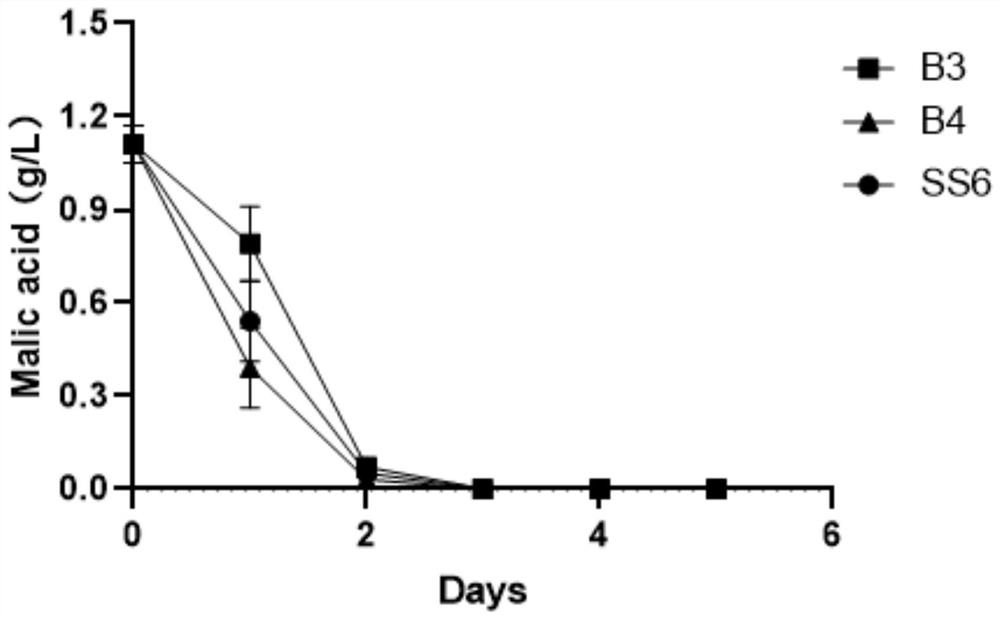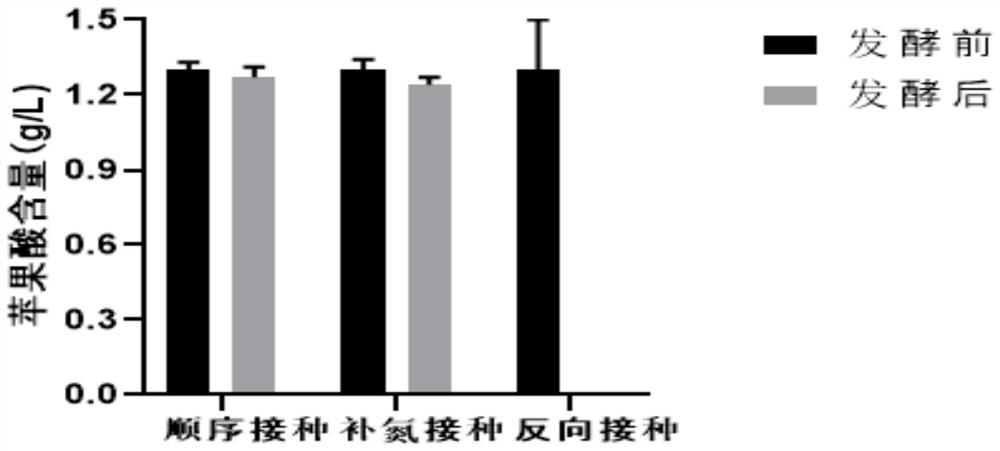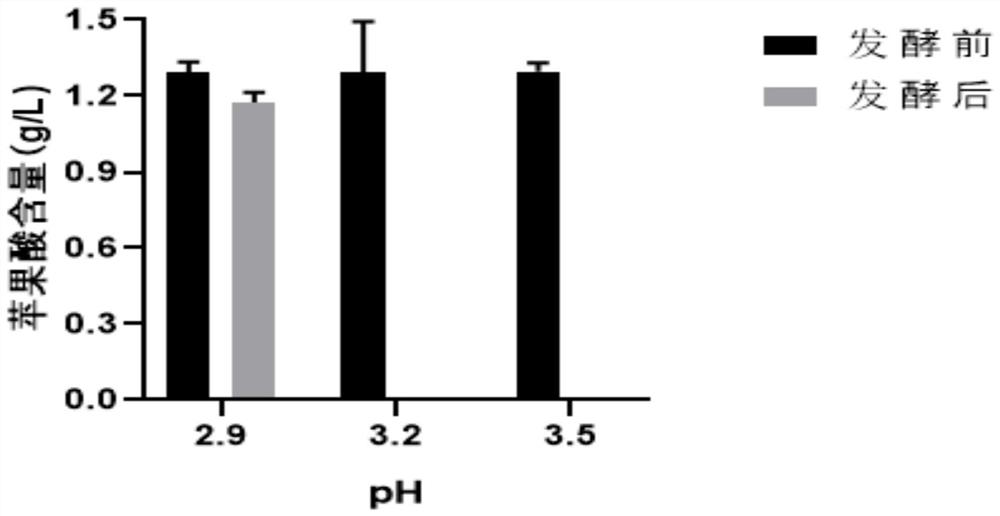Lactobacillus plantarum and application thereof
A technology of Lactobacillus plantarum and composition, which is applied in the field of microorganisms, can solve the problems of being unable to adapt to the low pH wine environment of blueberry wine, death, inhibition of malolactic fermentation ability, etc., and achieve high-efficiency malic acid fermentation ability, type and content increase, Continuous and stable color performance
- Summary
- Abstract
- Description
- Claims
- Application Information
AI Technical Summary
Problems solved by technology
Method used
Image
Examples
Embodiment 1
[0043] Example 1 strain isolation and identification
[0044] Strain isolation and screening:
[0045] Experimental raw materials: 'Lanfeng' blueberries, provided by the blueberry base of Dalian Senmao Modern Agriculture Co., Ltd., and transported by cold chain. Store in a -20°C freezer after delivery.
[0046] Experimental reagents: beef extract, yeast extract powder, peptone, calcium carbonate, dipotassium hydrogen phosphate, diammonium hydrogen citrate, anhydrous magnesium sulfate, manganese sulfate monohydrate, Tween-80, natamycin, sodium chloride From Shanghai McLean Biochemical Technology Co., Ltd.; glucose and sodium acetate were purchased from Beijing Chemical Plant; agar was purchased from Beijing Kebaio Biological Co., Ltd.; L-malic acid kit was purchased from Megazyme, Ireland.
[0047]After the blueberries were crushed, they were placed in a 5L fermenter for natural fermentation, and 1 mL was sampled every 2 days, spread on a pre-poured solid MRS medium plate and...
Embodiment 2
[0053] The selection of embodiment 2 lactobacillus plantarum B3 inoculation mode
[0054] In view of the fact that there are few cases of Lactobacillus plantarum fermented in blueberry wine, it is very meaningful to explore the role of Lactobacillus plantarum B3 in the lactic fermentation of blueberry wine, so the experimental wine sample was selected as blueberry wine. According to previous studies, Lactobacillus plantarum was inoculated after the alcoholic fermentation of blueberry wine, which showed a rapid loss of biological activity and a great inhibition of malic acid consumption. Therefore, the present invention explores the most suitable inoculation method of Lactobacillus plantarum in blueberry wine, adopting respectively: sequential inoculation (inoculation after alcohol fermentation ends); nitrogen supplement inoculation (after alcohol fermentation ends, supplement nitrogen source inoculation); reverse inoculation ( Inoculate at the beginning of alcoholic fermentati...
Embodiment 3
[0056] Example 3 Blueberry Wine Optimum pH Selection
[0057] Through preliminary experiments, it was found that the fermentation effect of Lactobacillus plantarum B3 in a low-pH wine environment was not ideal, and the specific performance was incomplete consumption of malic acid, rapid death after inoculation of Lactobacillus plantarum, and the comparison of various indicators with those without inoculation of Lactobacillus plantarum Group difference is little, therefore, design experiment exploration under reverse inoculation condition, adjust blueberry juice pH with sodium bicarbonate before inoculation, set three pH conditions: pH=2.9; pH=3.2; pH=3.5 (pH before inoculation), The change of malic acid content in samples before and after fermentation was monitored.
[0058] The result is as image 3 As shown, at pH=2.9, the content of malic acid did not decrease significantly before and after fermentation. It may be that the low pH inhibited the activity of Lactobacillus pla...
PUM
 Login to View More
Login to View More Abstract
Description
Claims
Application Information
 Login to View More
Login to View More - R&D
- Intellectual Property
- Life Sciences
- Materials
- Tech Scout
- Unparalleled Data Quality
- Higher Quality Content
- 60% Fewer Hallucinations
Browse by: Latest US Patents, China's latest patents, Technical Efficacy Thesaurus, Application Domain, Technology Topic, Popular Technical Reports.
© 2025 PatSnap. All rights reserved.Legal|Privacy policy|Modern Slavery Act Transparency Statement|Sitemap|About US| Contact US: help@patsnap.com



